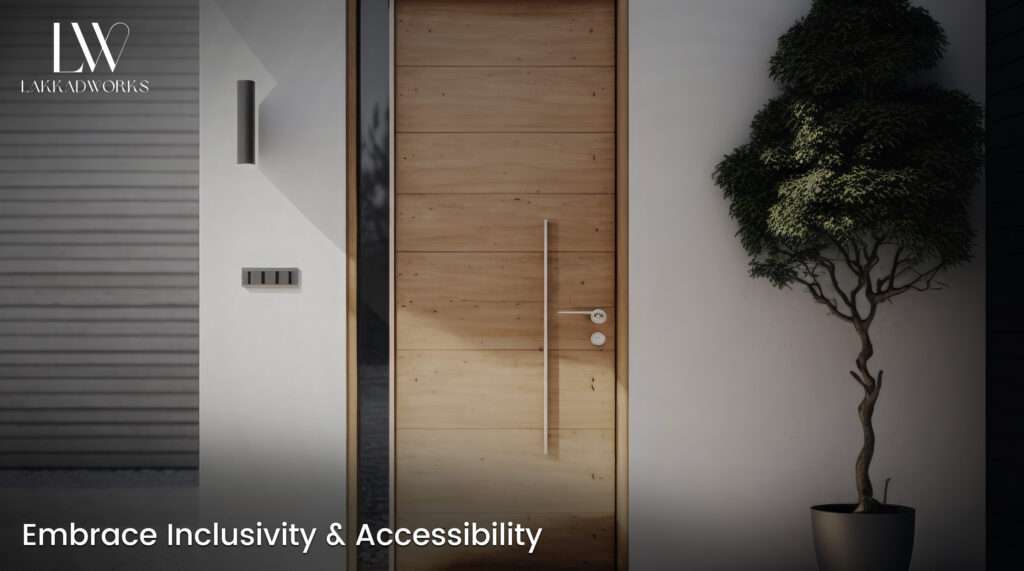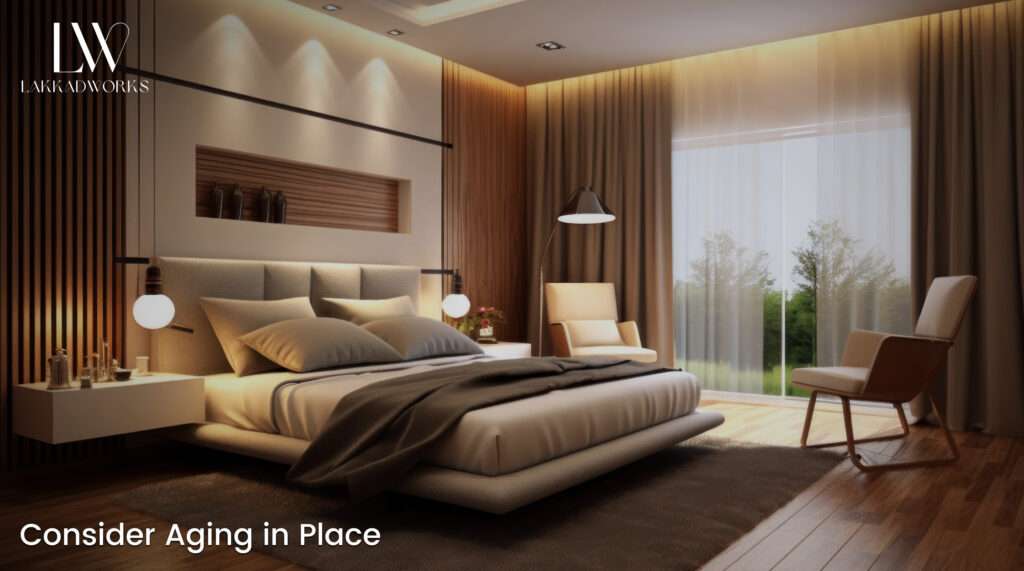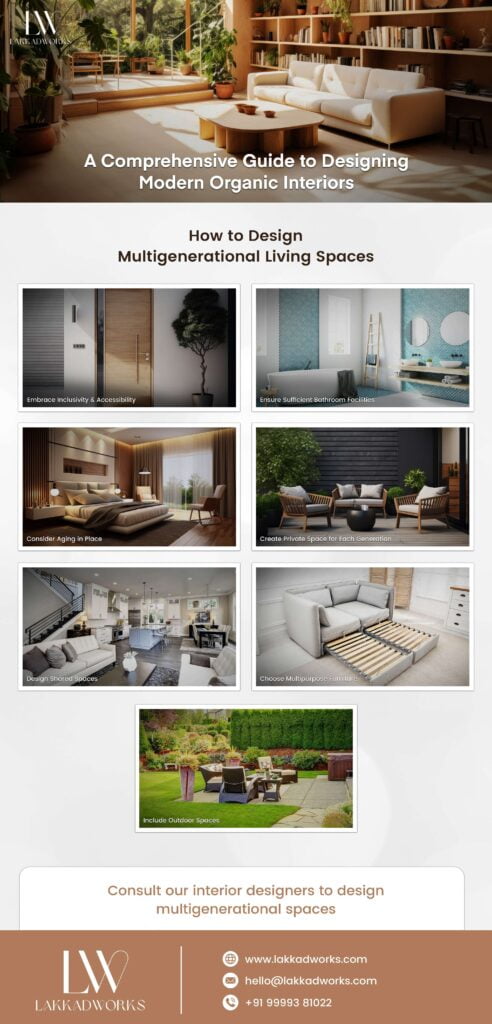February 15th, 2024
In this blog post, we have shared a list of the best home interior designs for multigenerational living. These home interior décor ideas foster a sense of togetherness while honouring individuality. Read on for more!
What is Multigenerational Living?
Multigenerational living requires the privacy requirements of each generation while also providing ample space for them to unite and relish each other’s companionship. Achieving successful multigenerational living depends on planning the home’s interior decor in a way that serves the unique needs of every individual living in that home. It is a lifestyle choice that recognises the value of collective experience and mutual support within the family.
How Can We Make Multigenerational Living Spaces Safer and More Comfortable?
1. Embrace Inclusivity and Accessibility

Designers commonly follow universal design principles that aim to create spaces that are accessible and user-friendly for people of all ages and abilities. This approach involves incorporating special features in the home’s interior decor that enhance usability and safety, regardless of the person’s physical or cognitive capabilities. The interior design should minimise any tripping hazards and the consequences of accidental or unintended actions. The following are some examples of the best home interior designs based on universal design principles:
• Wide Doorways: Designing doorways to be wider than standard to accommodate wheelchairs and walkers easily.
• Zero-Step Entries: Eliminating steps at entryways to provide a smooth transition for those with mobility challenges.
• Lever-Style Door Handles: Installing lever handles instead of traditional doorknobs for easier use by individuals with limited hand dexterity.
2. Ensure Sufficient Bathroom Facilities

3. Consider Aging in Place

The concept of aging in place refers to the ability of older adults to live independently and comfortably in their homes as they age. When designing for multigenerational living, you should consider features that support the aged family members. To décor interiors for aged members, you may consider the following features:
• Main-Level Bedrooms: Designing a bedroom on the main level to avoid the need to climb stairs regularly.
• Grab Bars: Installing grab bars in bathrooms to assist with balance and stability.
• Barrier-Free Showers: Creating curbless showers that are easy to access without the risk of tripping.
4.Create Private Space for Each Generation

5.Design Shared Spaces

While personal spaces are essential for privacy, shared spaces play a pivotal role in fostering family togetherness. To décor the interiors of the living room, dining area, and kitchen, consider keeping open spaces to encourage interaction and bonding among family members. The kitchen should be open and directly connected to the dining area or sitting hall.
In addition, you can also opt for open floor plans that allow for easy flow between rooms and flexible furniture arrangements. To create a sense of belonging for each family member, encourage them to add their personal touch to shared spaces through décor, artwork, and colour choices. Personalisation fosters a feeling of ownership and creates a home that truly reflects the family’s collective identity.
6. Choose Versatile, Multipurpose Furniture and Décor

Multigenerational living requires furniture that adapts to the changing needs of family members. Use modular and multifunctional furniture pieces for your home interior decor that serve multiple purposes. Some of the multipurpose furniture you can choose from are as follows:
• Sofa Beds: Incorporating sofa beds into communal areas allows the living room to transform into a guest room when needed.
• Extendable Dining Tables: Using extendable dining tables accommodates large family gatherings and can be adjusted for everyday use.
7. Think About Outdoor Spaces

Outdoor areas, such as a patio or garden, provide a space for the family members to retreat, relax, and enjoy nature together or in solitude. Design outdoor spaces with comfortable seating, shade options, and greenery to create inviting retreats for all generations.
While planning your outdoor space, take additional precautions to make it safe and accessible for all generations. Consider incorporating sloping pathways, handrails, and raised garden beds to make the outdoors enjoyable and safe for children and older family members.
Importance of Open Communication and Collaboration in Planning Home Interior Decor
Optimise Your Space Layout for Flow and Functionality!
Optimise Your Space Layout for Flow and Functionality!
The Bottom Line
Designing a home for multigenerational living is a fulfilling journey that celebrates the diversity and unity of family. By embracing inclusivity, accessibility, and versatility in design, you can create harmonious spaces that cater to the unique requirements and preferences of each generation. Multigenerational living offers an opportunity to foster stronger family bonds, enhance support systems, and create lasting memories in a home where everyone feels valued, heard, and at ease.
However, it’s always best to get professional help to design the home interior decor for multigenerational living. A professional interior designer or interior design agency can ensure your requirements are fulfilled with utmost safety. Lakkadworks is one of the best home interior design service providers and furniture manufacturers in Delhi NCR. From planning and designing to execution – we ensure that you have a house you can call home. Our expert team of professionals has mastered the art of designing houses for multifunctional living with customisation. Visit us or contact us at +91-9999381022 to consult our designers!



